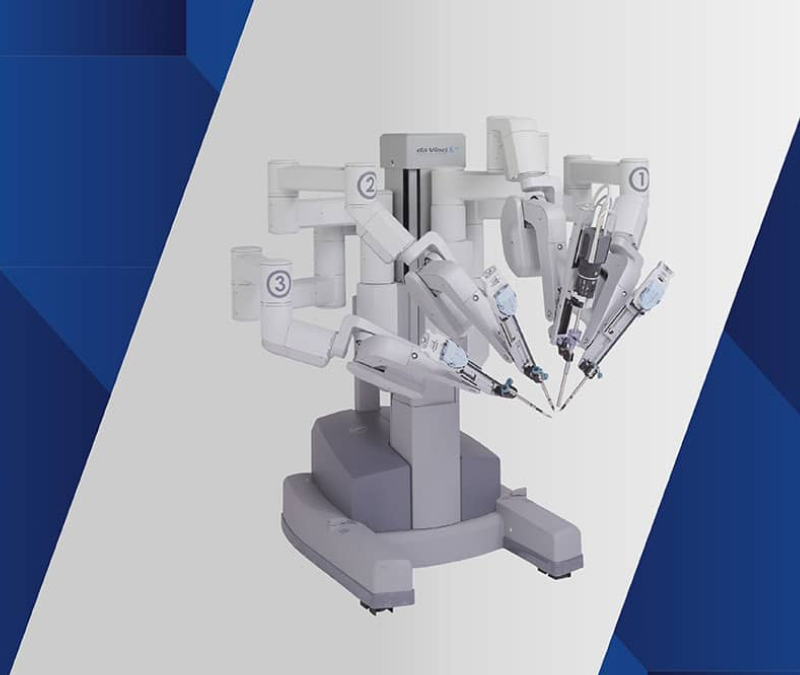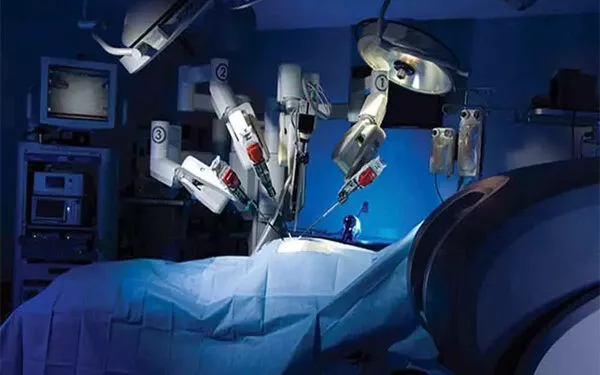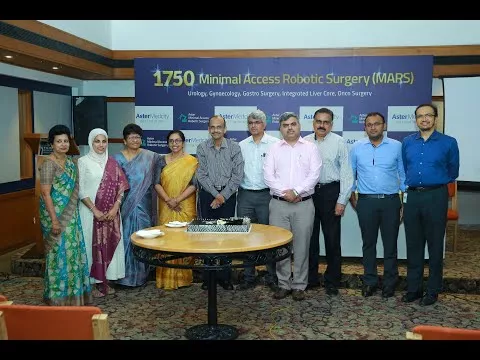Robotic urology is a specialized department within Aster Centre of Excellence in Urology that involves the use of robotic-assisted technology for the diagnosis and treatment of various urologic conditions. It combines the expertise of urologists with advanced robotic systems to perform precise and minimally invasive procedures in the field of urology.
Highlights Of Aster Robotic Urology
- First Centre in South India to start Robotic Kidney Transplant
- 10 years of expertise in Robotic surgeries and completed 2300 surgeries
- First Robotic Surgery In Kerala in 2014
- 4th institution in the world to complete 100 Robotic Recipient Kidney Transplant Surgeries
- 2nd place in the world to do Transvaginal Robotic Kidney Transplant
- 800 Robotic Prostatectomy With 98% Continence Rate
- 400 Partial Nephrectomies
- 400 Radical Nephrectomy
- 800 Kidney Cancer Surgeries
- First Radical Nephrectomy And IVC Thrombectomy In India
- Second Institution In World To Perform Level 3 IVC Thrombectomy And Radical Nephrectomy
Aster Medcity has revolutionized the field of robot assisted urologic surgery, offering patients improved outcomes, reduced invasiveness, and faster recovery times. It continues to play a significant role in the management of urologic conditions, particularly in complex surgeries and cases that require precision and expertise. The centre is staffed by a team of highly skilled and experienced urologists who have undergone specialized training in robotic-assisted surgery. Our urologists have expertise in performing a wide range of urologic procedures using robotic technology and provide comprehensive care to patients.
The Centre for Robotic Urology offers a comprehensive range of urologic services, including but not limited to:
- IVC Thrombectomy
- Robotic Adrenalectomy
- Robotic Partial Nephrectomy
- Robotic Pyeloplasty
- Robotic Radical Prostatectomy
- Robotic Ureteric Reimplantation
- Robotic Vesicovaginal Fistula Repair
- Single Incision Donor Nephrectomy
We, at Aster Medcity, follows a collaborative approach to patient care. Our Robotic Surgery team works in conjunction with other specialists, such as radiologists, pathologists, oncologists, and radiation oncologists, to ensure comprehensive evaluation, diagnosis, and treatment planning for each patient.
Blogs
The source of trustworthy health and medical information. Through this section, we provide research-based health information, and all that is happening in Aster Hospital.









